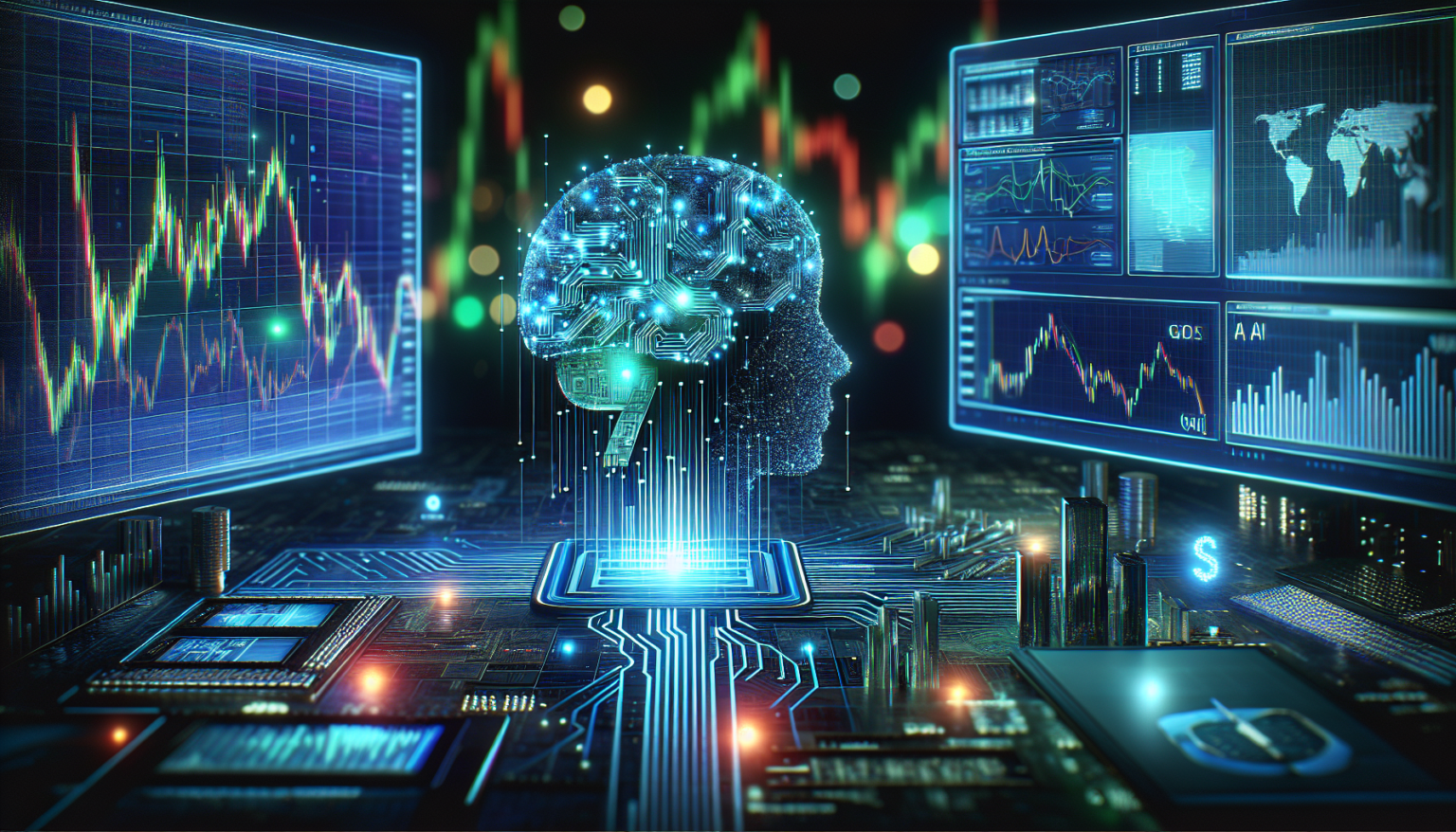The Landscape of Automated Trading Strategies
Understanding Automated Trading
Automated trading involves the use of algorithms and software to execute trades in financial markets. It eliminates the need for manual intervention, allowing traders to set specific criteria for buying and selling assets. This can be based on a variety of factors, including price, volume, and trends. The rise of technology has made it easier for both institutional and retail investors to utilize these strategies.
The Role of AI in Trading
AI is revolutionizing automated trading strategies. By utilizing machine learning and advanced statistical models, AI can analyze vast amounts of market data much quicker than humans. This capability allows traders to identify patterns and relationships that might not be visible through traditional analysis. Consequently, AI systems can anticipate market movements and execute trades that align with a trader’s strategy and risk tolerance.
Current Applications of AI in Automated Trading
Machine Learning Algorithms
One of the most prevalent applications of AI in automated trading is through machine learning algorithms. These algorithms can learn from historical data, continuously adapting to changing market conditions. For instance, they can refine their trading strategies by evaluating the success or failure of previous trades, adjusting parameters, and responding to new inputs in real-time.
Sentiment Analysis
Sentiment analysis is another exciting application of AI in trading. By analyzing news articles, social media posts, and other public sentiment indicators, AI can gauge market sentiment. This data can inform trading strategies by predicting how market sentiment might influence asset prices. This type of analysis can be particularly effective for short-term trading strategies where market psychology plays a significant role.
Algorithmic Trading Bots
Trading bots powered by AI are becoming increasingly popular. These bots can execute trades autonomously based on predefined conditions and learned patterns. Traders can customize their bots to follow specific strategies, such as arbitrage or market-making, while the AI continuously learns from market behavior to optimize execution and improve profitability.
The Future of AI in Automated Trading Strategies
More Advanced Predictive Analytics
The future will likely see even more sophisticated predictive analytics fueled by AI. As algorithms improve, they will be able to analyze more complex datasets, including economic indicators, geopolitical events, and technical indicators, to generate nuanced predictions. Such advancements will enhance the ability to forecast market trends and will enable traders to make better-informed decisions.
Integration of Real-time Analytics
Real-time analytics will play a crucial role in the future of AI in trading. Fast, real-time data processing will allow traders to act swiftly on information that could impact prices. AI systems will be able to incorporate real-time data feeds, responding dynamically to changes in market conditions, thereby maximizing trading opportunities and minimizing risks.
Enhanced Risk Management
AI can transform risk management in trading strategies. With the capability to analyze patterns in risk factors, AI can provide predictive insights that help traders manage their risk exposures more effectively. This includes generating alerts for potential downturns or highlighting positions that may need to be adjusted based on market volatility.
Customized Risk Profiles
In the future, AI could help create highly customized risk profiles for individual traders. By analyzing a trader’s behavior and preferences, AI can tailor risk strategies specific to their investment goals and risk tolerance. This level of personalization could significantly enhance trading efficiency and effectiveness, making automated trading a more viable option for both novice and experienced traders alike.
Regulatory Compliance and Ethical Trading
As trading strategies become more automated and driven by AI, regulatory compliance will also need to evolve. Advanced AI systems can integrate compliance checks into their algorithms, ensuring that trades adhere to regulations. Furthermore, they can help monitor for market manipulation and other unethical trading practices. This could lead to a more transparent and fair trading environment.
Bias Mitigation
AI systems are not immune to biases, which can affect trading decisions based on flawed data or flawed logic. Future advancements in AI must focus on mitigating these biases. This means continuously refining models, using diverse datasets, and implementing checks that prevent biased trading decisions. Developing bias-free algorithms will be crucial for ethical trading.
Collaboration Between Human Traders and AI
The Synergy of Human Insight and AI Analysis
Despite advances in AI, human traders will continue to play an important role. The future of automated trading strategies will likely involve a synergy between AI and human intuition. While AI can process data and identify trends, human traders can provide context, emotional intelligence, and a broader understanding of market dynamics.
Augmented Decision-Making
AI tools can augment human decision-making by providing actionable insights based on extensive data analysis. Traders can leverage these insights to make more informed decisions while retaining control over their trading strategies. This partnership can lead to greater success as traders benefit from enhanced analytical capabilities without losing the critical human touch that understanding market nuances provides.
Education and Training
As AI continues to evolve, education and training will be pivotal in preparing traders to work alongside AI systems. Financial professionals will need to understand how to interpret AI-generated insights and how to incorporate them into their trading strategies. The focus will shift from manual trading techniques to understanding AI’s analytical capabilities and utilizing these tools effectively.
Ethics and Accountability in Trading
With the rise of AI in trading comes the responsibility of ensuring ethical practices. Training future traders will involve imparting a strong ethical foundation, ensuring that they recognize the implications of their trades and the role of automation. Knowledge of AI’s inherent risks and ethical considerations will be essential, fostering a more responsible trading community.
Challenges Ahead
Data Privacy and Security
As AI systems become more entrenched in trading, data privacy and security will be paramount. With heightened concerns about data breaches, safeguards must be put in place to protect sensitive trading information. This challenge will necessitate ongoing investment in cybersecurity measures to ensure that both institutional and retail traders can operate in a secure environment.
Market Volatility and AI Limitations
While AI offers significant advantages, it is not immune to challenges such as market volatility. Algorithms may struggle during extreme market conditions, leading to unexpected outcomes. Traders must remain aware of these limitations, ensuring they have contingency plans in place for periods of high volatility.
The Road to Full Automation
While the future of AI in automated trading strategies is promising, achieving full automation will take time. Human oversight will remain crucial, particularly in understanding market nuances. Developers and traders must work together to create systems that optimize the balance between automation efficiency and necessary human involvement.
Adapting to New Technologies
As technological advancements continue, traders will need to adapt their strategies to leverage new developments. This might involve continuous learning and adaptation to new software, tools, and market conditions. Staying agile and open to change will be vital for traders looking to thrive in the evolving landscape of automated trading.
Overall, embracing AI in automated trading strategies presents a wealth of opportunities. The developments on the horizon are exciting and hold the potential to redefine how trading activities are conducted, leading to increased efficiency, enhanced risk management, and a more vibrant trading market.








